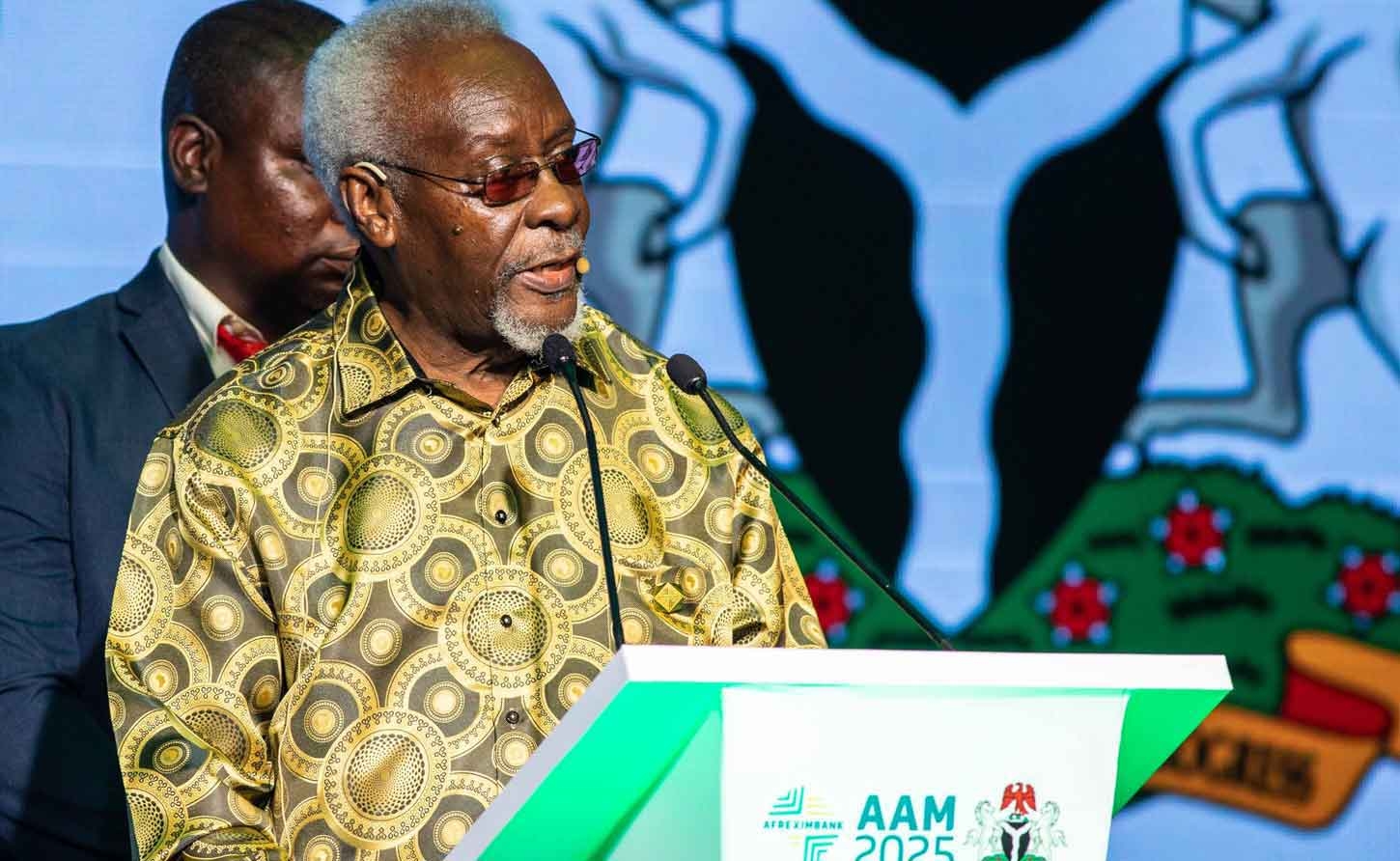AFRICA | Patterson Calls for Africa-Caribbean Economic Revolution at Afreximbank Annual Meeting

ABUJA, Nigeria – June 25, 2025 –In the grand halls of Abuja, where African leaders gathered for Afreximbank's 32nd Annual Meeting, Jamaica's longest-serving Prime Minister P.J. Patterson delivered a stirring call to arms that reverberated far beyond Nigeria's borders.
The respected statesman, whose 14-year tenure transformed Jamaica's economy and whose diplomatic prowess helped architect the foundational agreements between Africa, Caribbean and Pacific nations, emerged as the voice of what he calls "Global Africa's" economic destiny.
"We are now separated by the Atlantic Ocean, but we should never forget that in the age of Gondwana, we were all part of a single supercontinent," Patterson declared, weaving geological metaphor with economic reality.
His words carried particular weight given that current bilateral trade between Africa and the Caribbean stands at just US$729 million—yet research by the International Trade Centre and Afreximbank shows this could skyrocket to US$1.8 billion by 2028.
Patterson's address came at a pivotal moment. Afreximbank reported robust Q1 2025 performance with US$215 million in net income, providing the financial muscle to back his ambitious vision.
The timing was no coincidence—the former Prime Minister has been quietly building this movement for decades, his Institute for Africa-Caribbean Advocacy at UWI now pioneering an AI hub to digitally unite the regions.
Patterson’s credentials for leading this charge are unassailable. As Jamaica's Foreign Minister in the 1970s, Patterson was the key architect of the original Lomé Convention, forging the framework that governed African-Caribbean-Pacific relations with Europe for over two decades. His fingerprints are on every major Caribbean integration initiative, from CARICOM's Single Market to the Caribbean Court of Justice.
But Patterson's speech was more than historical retrospection—it was a masterclass in geopolitical necessity. "The global order that has existed since the Second World War is imploding before our eyes," he warned, his slow, measured delivery lending gravity to each word. The emergence of protectionism and the dismissive treatment of Global South aspirations, he argued, demands urgent action.
His solution is elegantly simple yet revolutionary: transform centuries of shared trauma into economic triumph. "When our ancestors were taken across the Middle Passage, they brought with them not only pain, but also purpose," Patterson intoned, drawing on the cultural DNA that connects Kingston to Lagos, Bridgetown to Accra.
The former Prime Minister praised Afreximbank's Caribbean Initiative, and the numbers support his optimism. Afreximbank has committed US$2.5 billion in project pipelines and US$1.5 billion in investment opportunities across both regions. The bank's new African Trade Centre in Bridgetown, Barbados, commissioned in March 2025, serves as a tangible symbol of this growing partnership.
Patterson's prescription extends beyond trade figures to technological leapfrogging. He envisions AI and digital platforms as the new Middle Passage—not of suffering, but of prosperity. "We who belong to Global Africa must develop AI of our own to deepen our economic and cultural linkages," he declared, acknowledging Afreximbank's funding for the UWI pilot study.
The veteran negotiator's diplomatic instincts shone through his call for unified positioning in global forums. Having once chaired the UN Security Council and led the Group of 77, Patterson knows the power of solidarity. "We must not allow ourselves to be divided or disregarded in the WTO, in the IMF, at the United Nations," he emphasized, his voice carrying the authority of someone who has sat at those tables.
Perhaps most powerfully, Patterson framed economic emancipation as inseparable from cultural identity. "The post-colonial project cannot be fulfilled by economic metrics alone," he declared. "Our economic emancipation must be rooted in the fullest recognition of who we are."
As delegates filed out of the Abuja conference hall, Patterson's vision hung in the air like incense—intoxicating, transformative, and somehow inevitable. With over 1,000 delegates from 80 countries converging for July's AfriCaribbean Trade and Investment Forum in Grenada, the momentum behind his "Global Africa" concept appears unstoppable.
In an era of fragmenting alliances and rising nationalism, P.J. Patterson offers something rarer than diplomatic platitudes: a blueprint for prosperity rooted in shared heritage, powered by modern technology, and driven by the unshakeable belief that history's victims can become tomorrow's victors.
Patterson emphasized that economic transformation must be rooted in cultural pride and historical understanding. "The post-colonial project cannot be fulfilled by economic metrics alone," he said. "Our economic emancipation must be rooted in the fullest recognition of who we are."
He challenged both regions to teach their youth about their rich heritage: "Our youth must know that they are descendants of astronomers, engineers, architects, and philosophers. Before the Age of Exploration, there was the Age of the Nile Valley, of Timbuktu, of Kumasi and the Maroons—we are creators of knowledge."
Looking Forward
Patterson concluded his address with a call to action that resonated throughout the conference hall: "When our ancestors were taken across the Middle Passage, they brought with them not only pain, but also purpose.
Today in this room, we are that harvest. We are the realization of their longing. Let us turn this Initiative into a movement, and this movement into momentum of our unity, prosperity and pride."
Meanwhile, the following is an ITV Abuja television news report of a function held in that city to honour the former prime minister of Jamaica and Statesman In Residence of the P.J. Patterson Institute for Africa-Caribbean Advocacy at the University of the West Indies, Mona, Jamaica.
-30-
